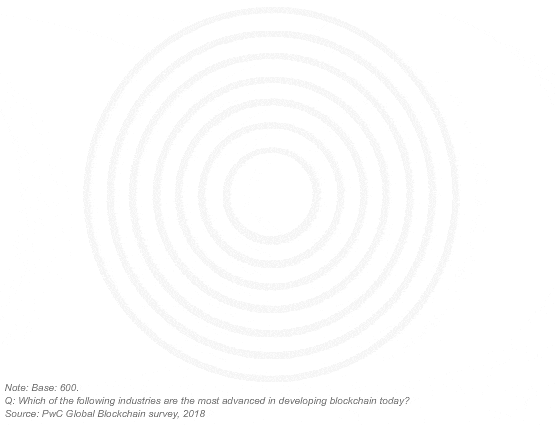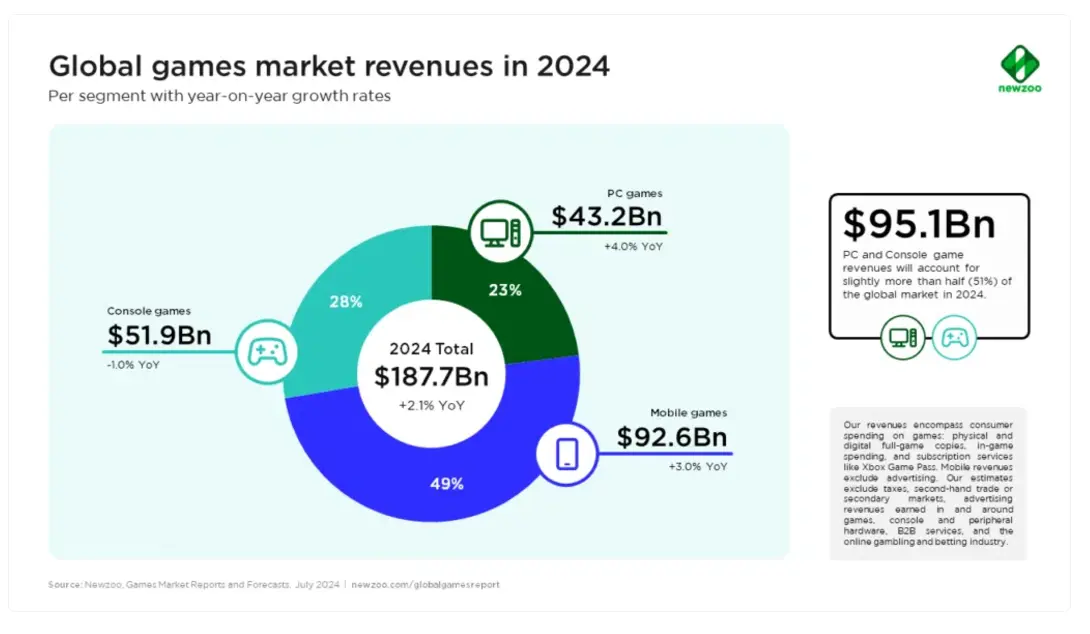Gartner forecasts that by 2025, blockchain technology will add value worth over $176B to businesses, and it is predicted to exceed $ 3.1T by 2030. These facts bring along the possibility that 5% to 15% of the global economic infrastructure will have blockchain-based systems. Industries ranging from financial services, healthcare to retail have started adopting blockchain. To dive deeper, let’s take a look at how receptive the companies are to blockchain:

Table of Contents
Benefits of blockchain to businesses
-
- Secured transactions
- Managing digital relationships
- Eliminating intermediaries
- Tracking and Tracing
Blockchain use cases in various business sector
-
- Healthcare
- Media
- Gaming
- Food Safety
- Additive manufacturing
Benefits of blockchain to businesses
In the last couple of years, blockchain has expanded its prospects and moved far beyond cryptocurrencies. Here are some ways in which businesses can leverage the best out of this technology:
- Improved Security of Transactions
-
- Immutability: Data cannot be changed or removed once it is stored on a blockchain, guaranteeing the security and integrity of transactions.
-
- Cryptography: Sophisticated cryptographic methods, such as digital signatures and hashing, safeguard data and confirm the legitimacy of transactions.
-
- Distributed Ledger: By replicating data across several nodes, it is impervious to single points of failure and attacks.
- Distributed Ledger: By replicating data across several nodes, it is impervious to single points of failure and attacks.
- Effective Management of Digital Relationships
-
- Smart Contracts: These are self-executing agreements that eliminate the need for middlemen by automating procedures and encoding the terms of the contract straight into code.
-
- Real-time tracking: DLT makes it possible to track assets and transactions in real-time, giving firms the most recent information.
-
- Greater Transparency: By enabling everyone in a network to access and validate information, transparency promotes cooperation and confidence.
- Removal of Intermediaries
-
- Lower Costs: Companies can save transaction fees and operating costs by doing away with middlemen.
-
- Faster Transactions: Compared to conventional systems, blockchain networks can conduct transactions more rapidly and effectively.
-
- Enhanced Productivity and Efficiency: Automation and streamlined procedures raise overall productivity and efficiency.
- Monitoring and Tracing
-
- Supply Chain Transparency: By tracking products from the point of origin to the customer, blockchain ensures authenticity and quality.
-
- Fraud Prevention: Data manipulation and fraudulent activities are made more difficult by immutable records.
-
- Regulatory Compliance: By offering a transparent and auditable record of transactions, blockchain can assist companies in adhering to regulations.
- Consensus Mechanisms: Various methods, including Proof of Work and Proof of Stake, guarantee the network’s security and integrity.
- Network Topology: Whether a blockchain is public, private, or hybrid, its structure affects both security and performance.
Scalability: The blockchain’s capacity to manage growing data storage and transaction volumes.
Interoperability: The capacity of several blockchains to share information and communicate with one another.
Blockchain use cases in various business sectors
Here are some industry-specific applications where blockchain can make a huge difference:
Healthcare
The healthcare sector is highly vulnerable to cyberattacks. To ensure safety and confidentiality, medical institutions need to protect their data. Secured data distribution between the clinics and hospitals can improve healthcare services and make treatment more effective with an accurate diagnoses. With blockchain, patients, clinics, and other entities can collaborate to give access to the network without risking critical data.
Additionally, blockchain-driven healthcare solutions can significantly improve patient care, advance medical discovery, secure patient data management, and track medical supplies.
Gaming
By the end of 2024, the global gaming market reached US$187.7 billion, and gaming became a multi-billion-dollar industry through its competitions, winners, cash rewards, and the black market.

Image Source: Newzoo Global Games Market Report 2024
Online gamers can start generating revenue with blockchain technology by reselling their in-game items to other players. Online players buy in-game services/components to boost their gaming levels and have a better experience. With blockchain, gamers can collaborate and make secure transactions according to their needs.
Supply Chain
Blockchain technology is transforming supply chain management into a transparent, traceable, and secure system, allowing all stakeholders to access a shared, immutable decentralized ledger. This ledger captures every transaction and movement of goods, providing manufacturers, distributors, and consumers with dependable, real-time insights into a product’s lifecycle. By ensuring accurate and unalterable data access, blockchain fosters trust and enhances efficiency within the supply chain.
Implementing blockchain-based supply chain technologies shows an increased inclination toward supporting sustainable and ethical business integration. Through the transparency of the supply chain and the detailed view, companies are empowered by blockchain to confirm that their goods are sourced responsibly and comply with the ethical rules.
Retail
The implementation of blockchain in retail enables the tracking of every product movement, which wholesalers and retailers can easily monitor. This results in more efficient and streamlined system management, with ledgers stored on a network that provides access to all stakeholders involved.
Given the fast-paced nature of retail and the industry’s swift growth, coupled with the constantly evolving consumer demands, blockchain emerges as an attractive solution. This technology tackles several persistent issues in the sector, including security and counterfeiting problems, data management hurdles, and significantly lowers operational costs.
Food Safety
Strict compliance and high quality are the main focus of the food industry. Rotten food products and beverages can harm your health and lead to serious diseases. Therefore, packaged goods companies must follow all the regulatory standards and requirements diligently.
With blockchain, manufacturers and retailers can avoid such issues. It can enable vendors to track the entire supply chain and identify any contamination cases. It can ensure the quality of food products.
The perfect blockchain-driven solution can be implemented by simply adding QR codes to the products. You can access the entire journey of the product from the manufacturer to the retailer through these QR codes.
Additive manufacturing
In additive manufacturing, additive implies adding material to create an object, unlike the traditional method. The manufacturer uses a computer-aided design (CAD) model to create an object layer upon another layer with a specific symmetrical structure. The products in 3D manufacturing must be distributed and tracked and that requires an intelligent digital supply chain.
Blockchain can eliminate security bottlenecks by protecting IP from mishandling and streamlining project management.
Final Thoughts
With the combination of distributed ledger technology, tokenization, confidential computing, and many other technologies, you can create a network of collaborative ecosystems to increase transparency and agility.
At eInfochips, our blockchain experts established a consortium for a U.S.-based Fortune 500 company specializing in distribution and value-added services related to electronic components and enterprise computing solutions. The blockchain consortium enabled the client and its suppliers to get near-real-time product traceability, improve inventory and quality visibility, forecasting, and cost management using the Azure blockchain service (Quorum). The consortium members include tier-2 suppliers, system integrators, Microsoft, and the client (an electronics product manufacturer). This increased supply chain transparency provides more visibility to both manufacturers and suppliers. Read the Success Story.
To know about the full spectrum blockchain development services, contact our solution experts today.













